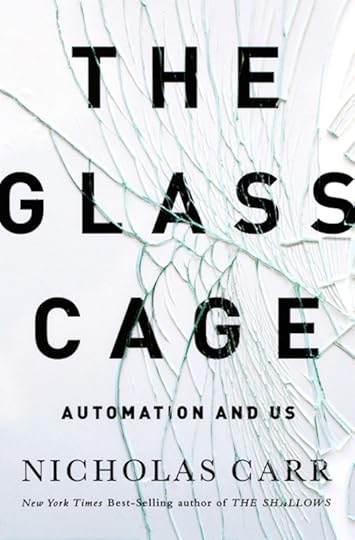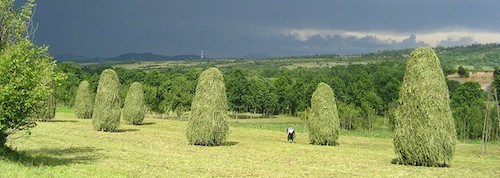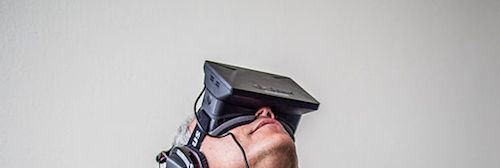Nicholas Carr's Blog, page 32
June 2, 2014
Marx Andreessen
In a series of rhapsodic tweets, venture capitalist Marc Andreessen imaginesa world in which robots take over all productive labor:
All human time, labor, energy, ambition, and goals reorient to the intangibles: the big questions, the deep needs. Human nature expresses itself fully, for the first time in history. Without physical need constraints, we will be whoever we want to be. The main fields of human endeavor will be culture, arts, sciences, creativity, philosophy, experimentation, explor...
May 25, 2014
The eunuch’s children
1. Pulp Fact
Gutenberg we know. But what of the eunuch Cai Lun?
A well-educated, studious young man, a close aide to the Emperor Hedi in the Chinese imperial court of the Eastern Han Dynasty, Cai invented paper one fateful day in the year 105. At the time, writing and drawing were done primarily on silk, which was elegant but expensive, or on bamboo, which was sturdy but cumbersome. Seeking a more practical alternative, Cai came up with the idea of mashing bits of tree bark and hemp fiber toget...
May 23, 2014
The cover of the cage
Here’s what The Glass Cage will be looking like when it drops on Sept 29.
Wear gloves.
Cover design by Pete Garceau.
May 17, 2014
Programming the moral robot
The U.S. Navy’s Office of Naval Research is funding an effort, by scientistsat Tufts, Brown, and RPI, to develop military robots capable of moral reasoning:
The ONR-funded project will first isolate essential elements of human moral competence through theoretical and empirical research. Based on the results, the team will develop formal frameworks for modeling human-level moral reasoning that can be verified. Next, it will implement corresponding mechanisms for moral competence in a computatio...
May 16, 2014
Overload, situational and ambient
The following is a reposting of one of Rough Type’s greatest hits. It originally appeared in these pages on March 7, 2011.
“It’s not information overload. It’s filter failure.” That was the main theme of a thoughtful and influentialtalkthat Clay Shirky gave at a technology conference back in 2008. It’s an idea that’s easy to like both because it feels intuitively correct and because it’s reassuring: better filters will help reduce information overload, and better filters are things we can actu...
May 14, 2014
From MOOCs to OCs
“When I called a MOOC a lousy product Iwasn’t kidding,” says Sebastian Thrun, the prime mover of the modern MOOC movement and the vast hypethat came to surround it, in a new interview at Pando Daily. The fatal flaw in the “classic MOOC,” Thrun now says, is that it was free. You can only have a decent MOOC if you get rid of the MO and just have the OC.
“It’s not a MOOC [anymore] because we end up charging for it,” Thrun says, in describing the new online courses offered by his company, Udacity,...
May 13, 2014
The end of the beginning
“If we automate ourjudgment-making and execute itat web scale,” Google and other aggregators have long told us, “then we absolve ourselves of responsibility for ourjudgments.” To which the Court of Justice of the European Union todayreplied, “No, you don’t.”
May 11, 2014
A complicated courtship
In early April, two articles appeared in leading European newspapers — “Fear of Google” in Frankfurter Allgemeine Zeitung, and “Google, or the Road to Servitude” in Le Monde — criticizing the consolidationof commercial and cultural power in the hands of Google and other large Internet companies. Shortlyafterward, Eric Schmidt offered a rebuttal, in the form of an open letter to Europe published in FAZ. “On a continent in search of economic hope, the Internet represents the main motor of econo...
May 10, 2014
Ends minus means
In my in-box this morning was a promotional email from Apple bearing this headline:
That sounds satisfying.
May 7, 2014
The poetics of progress
“I meet an American sailor,” writesAlexis de Tocqueville in Democracy in America,“and I ask him why the vessels of his country are constituted so as not to last for long, and he answers me without hesitation that the art of navigation makes such rapid progress each day, that the most beautiful ship would soon become nearly useless if it lasted beyond a few years.In these chance words said by a coarse man and in regard to a particular fact, I see the general and systematic idea by which a grea...











